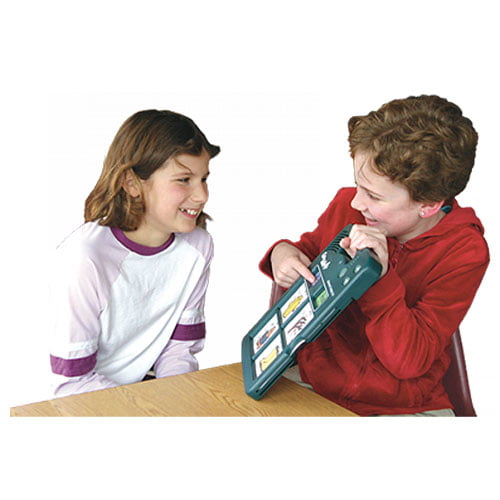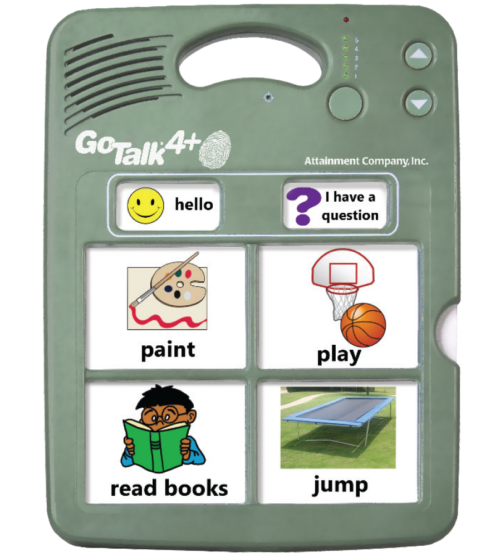-
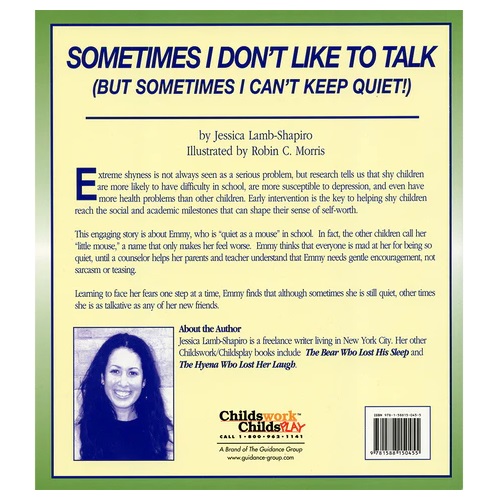
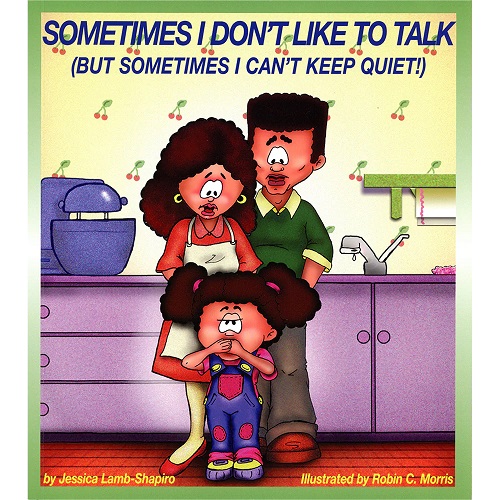 Extreme shyness is not always seen as a serious problem, but research tells us that shy children are more likely to have difficulty in school, are more susceptible to depression, and even have more health problems than other children. Early intervention is the key to helping shy children reach the social and academic milestones that can shape their sense of self-worth.
Extreme shyness is not always seen as a serious problem, but research tells us that shy children are more likely to have difficulty in school, are more susceptible to depression, and even have more health problems than other children. Early intervention is the key to helping shy children reach the social and academic milestones that can shape their sense of self-worth. -
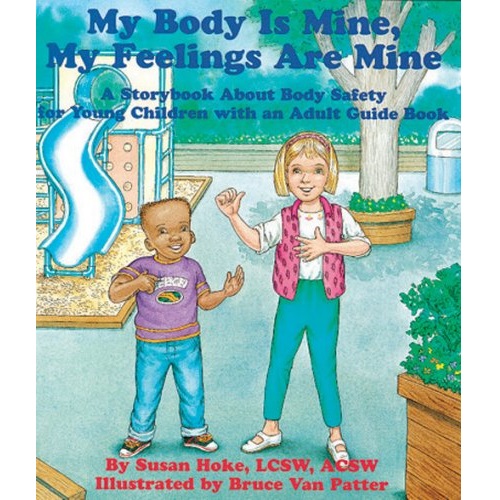 A Storybook About Body Safety for Young Children with an Adult Guidebook. This engaging storybook for young children is written to teach them important information about protecting themselves from the possibility of sexual abuse. It is recommended that the adult guidelines be read before you read this storybook with young children. 78 pages, soft-cover.
A Storybook About Body Safety for Young Children with an Adult Guidebook. This engaging storybook for young children is written to teach them important information about protecting themselves from the possibility of sexual abuse. It is recommended that the adult guidelines be read before you read this storybook with young children. 78 pages, soft-cover. -
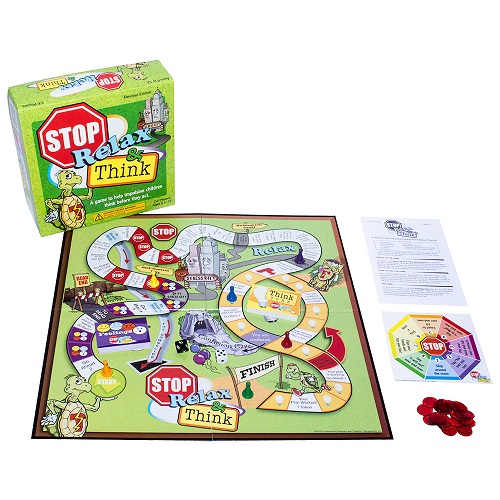 Created by Becky Bridges, C.S.W., A.C.P. In this ever-popular board game, active, impulsive children learn motor control, relaxation skills, how to express their feelings, and how to problem-solve. The manual includes information on how the game can be used both as a diagnostic and a treatment tool, and how behaviors learned in the game can be generalized for the home or classroom. The object of the game is to proceed through the Feelings, Stop, Relax, and Think sections of the game board to Finish, collecting chips along the way. The player with the most chips when the game ends wins.
Created by Becky Bridges, C.S.W., A.C.P. In this ever-popular board game, active, impulsive children learn motor control, relaxation skills, how to express their feelings, and how to problem-solve. The manual includes information on how the game can be used both as a diagnostic and a treatment tool, and how behaviors learned in the game can be generalized for the home or classroom. The object of the game is to proceed through the Feelings, Stop, Relax, and Think sections of the game board to Finish, collecting chips along the way. The player with the most chips when the game ends wins. -
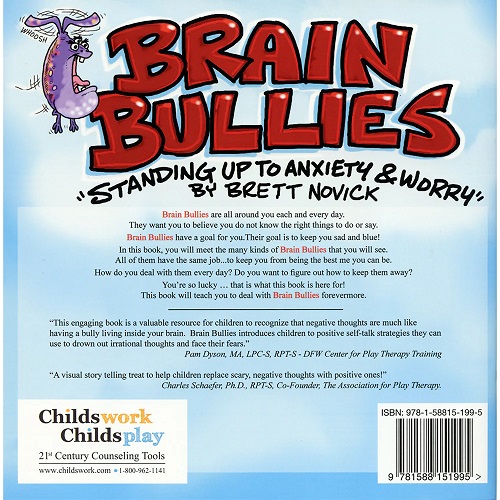
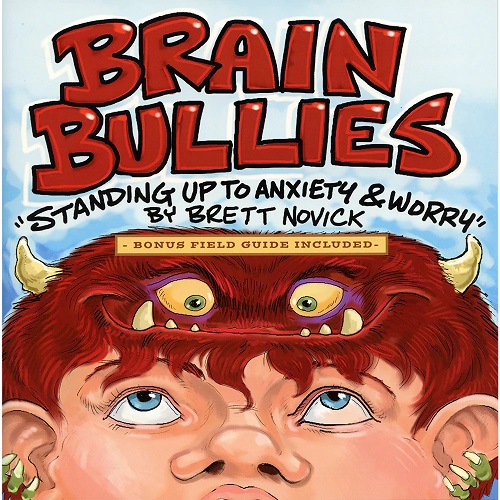 Brain Bullies is an effective tool for introducing the principals of cognitive therapy to children. The creative and colorful illustrations in Brain Bullies helps children identify the cognitive distortions that can make them anxious. The fun and nonthreatening illustrations of the “Brain Bullies” helps children develop an understanding of the internal dialogue that contributes to anxiety and other forms of emotional distress and upset. The most common distortive thought patterns are covered in Brain Bullies.
Brain Bullies is an effective tool for introducing the principals of cognitive therapy to children. The creative and colorful illustrations in Brain Bullies helps children identify the cognitive distortions that can make them anxious. The fun and nonthreatening illustrations of the “Brain Bullies” helps children develop an understanding of the internal dialogue that contributes to anxiety and other forms of emotional distress and upset. The most common distortive thought patterns are covered in Brain Bullies. -
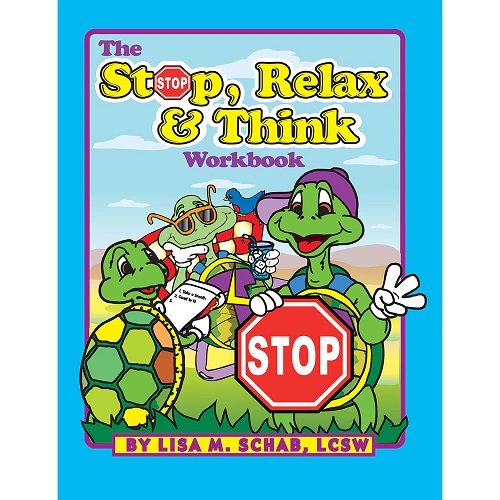 Written by Lisa M. Schab, LCSW. This workbook is designed to help children in general - and impulsive children especially - learn the cognitive, physical, and emotional skills they need to determine and use appropriate behavior across a variety of settings. This workbook contains more than 60 paper-and-pencil activities that teach children such important skills as thinking about consequences, staying focused and completing a task, engaging in quiet activities without disturbing others, and more. Each of the eight sections of the book contains fun activities, puzzles, and games that help reinforce these essential behavioral skills. 85 pages, spiral-bound.
Written by Lisa M. Schab, LCSW. This workbook is designed to help children in general - and impulsive children especially - learn the cognitive, physical, and emotional skills they need to determine and use appropriate behavior across a variety of settings. This workbook contains more than 60 paper-and-pencil activities that teach children such important skills as thinking about consequences, staying focused and completing a task, engaging in quiet activities without disturbing others, and more. Each of the eight sections of the book contains fun activities, puzzles, and games that help reinforce these essential behavioral skills. 85 pages, spiral-bound. -
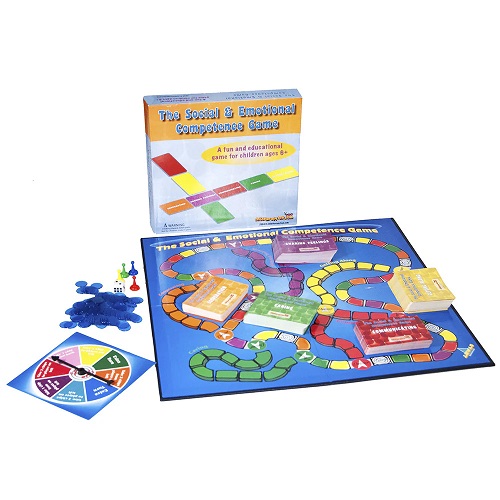
The Social and Emotional Competence Board Game developed by child psychologist Gary Yorke, Ph. D. Social and emotional competence refers to the capacity to recognize and manage emotions, solve problems effectively, and establish and maintain relationships with others. It is these skills that serve to protect our children from a host of difficulties including behavior problems, increased emotional distress, academic failure, delinquency, and substance abuse. Designed for 2-6 players. Recommended for ages 6-14.
-
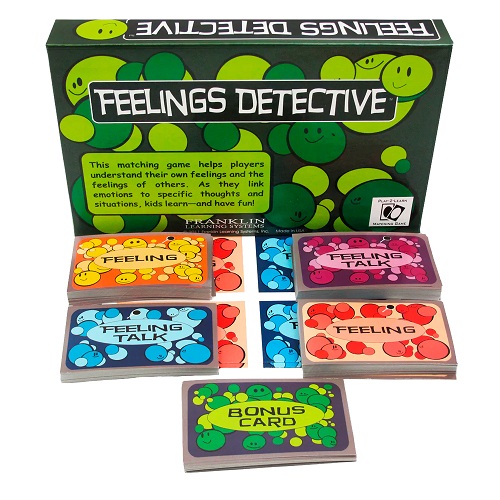 Feelings Detective helps all children understand their own feelings as well as the feelings of others. It is especially helpful for children who tend to misread social cues, including those who have been diagnosed with Asperger's Syndrome or are at any other position on the Autism Spectrum. Specific examples help players to link specific situations and thoughts with specific feelings. Feelings are the most basic building blocks of social skills. Without the ability to recognize feelings in themselves and others, children are not able to master social interactions.
Feelings Detective helps all children understand their own feelings as well as the feelings of others. It is especially helpful for children who tend to misread social cues, including those who have been diagnosed with Asperger's Syndrome or are at any other position on the Autism Spectrum. Specific examples help players to link specific situations and thoughts with specific feelings. Feelings are the most basic building blocks of social skills. Without the ability to recognize feelings in themselves and others, children are not able to master social interactions. -
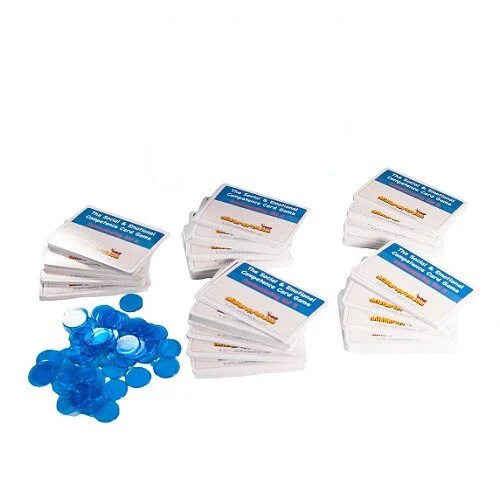 The goal is to educate players about a specific disorder and provide skills for managing the disorder. There are five decks of cards, one for each disorder: Anxiety, Depression ADHD, Asperger's, and Bipolar Disorder. Blank cards are included so that counselors/teachers can write their own questions or comments. The game includes 5 sets of cards (54 cards in each set), directions, and a bag of chips. Children with weak or emerging reading skills can have the cards read to them.
The goal is to educate players about a specific disorder and provide skills for managing the disorder. There are five decks of cards, one for each disorder: Anxiety, Depression ADHD, Asperger's, and Bipolar Disorder. Blank cards are included so that counselors/teachers can write their own questions or comments. The game includes 5 sets of cards (54 cards in each set), directions, and a bag of chips. Children with weak or emerging reading skills can have the cards read to them.

